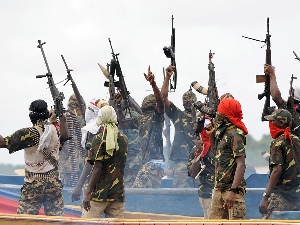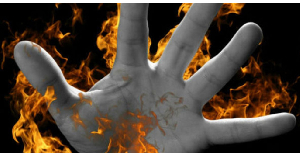Language is inevitably conceived with cultural and usually ethnic heritage. It has been described as the soul of every culture of a people.
Language is also an essential source of a peoples collective consciousness since there are certain experiences which may be only comprehensible to people who speak the same language .Linguists find a close and dynamic relationship between language and thought. For it is in language that custom, tradition, ethics poetry, history, religion and rituals are incarnated.
It is therefore a step in the right direction when UNESCO in Nov. 1999 instituted the International mothers language Day. The Day seeks to bring to the fore strategies nations should adopt to preserve the various indigenous languages and cultural diversity.
Prior to formal education, our forefathers used the mother tongue which is the indigenous language in a variety of ways to train their children.
Unfortunately, with the advent of formal education much attention has been focused on English Language; the lingua franca of the country to the detriment of the mother tongues. This unfortunate situation has led to Ghanaian languages being marginalized.
The migration of Ghanaian to western countries is also a contributing factor to the lost of Ghanaian languages, and culture; since most parents abroad do not communicate with their children in their local languages.
Various researches on language in education have established that the use of the L1 as a medium of instruction during one’s early years of schooling, results in improved acquisition of knowledge by pupils (Andoh-Kumi, 1992; Fa funwa et ed, 1989.
It is an undisputed fact that one cannot think effectively in someone else’s language.
It is also true that the mother tongue of a child is closely related to his/her growth and development.
Furthermore, research shows that the most suitable language for teaching basic concepts to children is their mother tongue, and when it is well grasped the child can effectively undertake other learning pursuits.
It is troubling that we are not taking advantage of these findings to get our children to reap the benefits of the use of our indigenous languages; instead we feel proud to communicate with our children in the foreign language, English which most of us do not speak well. Children are mostly taught wrong structures of the language at home and it affects their performance in the use of their English Language.
To add insults to injuries, almost all the private schools in Ghana makes it a taboo for children not to speak their mother tongue even at a level specified by the language policy of Ghana.
Children are therefore humiliated or punished if they happen to utter a word in their mother language. It is our collective responsibility to encourage our children, parents, politicians and even custodians of our culture to communicate in our local language.
The government is playing a significant role in ensuring that the child’s first home language should be used as medium of instruction at the first three years of the basic level.
Parents are also encouraged to communicate with their children in their mother tongue; after all “charity begins at home”.
An NGO based in the USA; Second Step Awareness Foundation (SSAF) is sphere heading the promotion of local languages among Ghanaians in the USA. SSAF shares the notion that if care is not taken most Ghanaian Languages will be extinct for the simple reason that parents do not attach importance of communicating their mother tongue with their children.
SSAF as an NGO, is heading the promotion of speaking and reading of Ghanaian languages among Ghanaians abroad.
A story was aired by BBC in 2008. According to the report a language in Alaska called “Ear” had recently become extinct because the last speaker had died. Though the speaker had eight children, they were not encouraged to speak it. They rather spoke English.
This is a lesson we must all take seriously and ensure that keeping our identity and culture; for that matter the Ghanaian Language is our Responsibility.
Kwaku Darkwah Boateng USA
Opinions of Thursday, 19 July 2012
Columnist: Boateng, Kwaku Darkwah














